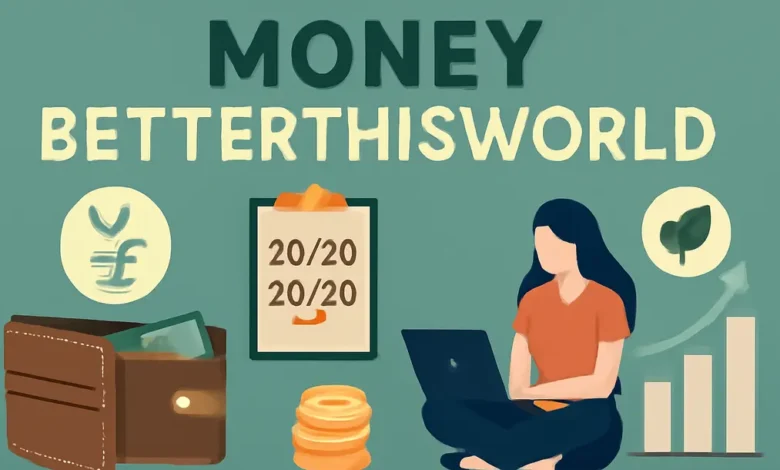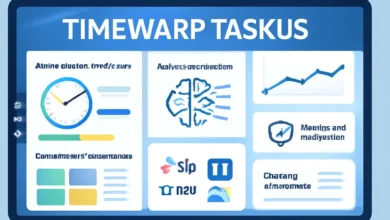Understanding Money BetterThisWorld: How to Make It Work for You

In today’s fast-paced world, money isn’t just a tool; it’s a central part of our daily lives, our hopes, and our dreams. With so many opportunities to earn and spend, it can often feel overwhelming. But understanding how Money BetterThisWorld—both in the broader economy and on a personal level—can make a huge difference in how we approach life and its challenges. Let’s break down some key ideas surrounding money and see how we can manage it better in this world.
The Evolution of Money: From Barter to Digital Transactions
Money BetterThisWorld has been around for centuries, but its form and function have evolved significantly. Initially, the concept of trade was based on the barter system. People exchanged goods directly—one person might trade livestock for grain, or tools for clothes. While this system worked for a while, it had clear limitations. It was inefficient, and it wasn’t always possible to find a perfect match between the things people needed and had to offer.
This led to the invention of coins and paper Money BetterThisWorld making transactions much easier and more efficient. Money became a universal standard, allowing people to buy and sell freely without worrying about finding someone who had exactly what they needed in exchange for their own goods. The introduction of paper currency was revolutionary, and it further propelled global trade.
Fast forward to the 21st century, and we’re living in the age of digital transactions. Today, most of our financial dealings occur online. We pay for goods and services using credit cards, mobile apps, and cryptocurrencies, all without ever touching a physical coin or bill. This shift has fundamentally changed the way we think about Money BetterThisWorld, allowing us to make instant transactions anywhere in the world. But while digital currency makes life easier, it also comes with its own set of challenges.
Managing Money in the Digital Age: Smart Strategies for Success
In today’s world, it’s easier than ever to spend money—whether it’s through online shopping, subscriptions, or even microtransactions in mobile apps. However, it’s crucial to develop smart strategies to manage money effectively, especially when financial pressures are high.
One of the first steps in managing Money BetterThisWorld wisely is creating a budget. While many people cringe at the thought of tracking every penny, budgeting is one of the best ways to ensure your money is being spent wisely. By categorizing your spending (rent, groceries, entertainment, savings, etc.), you can get a clear view of where your money is going and where you might be able to cut back.
Another important strategy is saving for both short-term and long-term goals. It’s easy to fall into the trap of spending all of your income each month, but putting away a portion into savings can provide financial security and peace of mind. Whether it’s for an emergency fund, retirement, or a big-ticket purchase, having Money BetterThisWorld set aside will help you navigate life’s uncertainties.
Investing is another key component of managing Money BetterThisWorld. With the right investment strategy, you can grow your wealth over time. Stocks, bonds, real estate, and other investment opportunities can offer significant returns, but it’s important to educate yourself before diving in. Risk is always a factor, so having a diversified portfolio is crucial to ensuring that you’re not putting all of your financial eggs in one basket.
The Role of Financial Literacy: Why Education Is Key to Financial Success
One of the biggest challenges facing many people today is a lack of financial literacy. While schools often teach math, science, and history, Money BetterThisWorld management is rarely on the curriculum. As a result, many people enter adulthood with little understanding of how to budget, save, or invest their money effectively.
However, becoming financially literate doesn’t have to be difficult or overwhelming. There are plenty of resources available—books, online courses, podcasts, and blogs—that can teach you everything you need to know about managing Money BetterThisWorld. Start with the basics, like understanding credit scores, interest rates, and the importance of saving, and work your way up to more complex topics like investing, taxes, and estate planning.
Once you understand the fundamentals, you can begin to implement better financial practices in your life. A solid understanding of money will help you make more informed decisions, avoid common pitfalls, and take control of your financial future. Ultimately, financial literacy isn’t just about knowing how to save; it’s about knowing how to make your money work for you.
The Psychological Impact of Money: How Our Emotions Shape Our Spending Habits
It’s not just about numbers and transactions—money also has a psychological impact on our lives. Many of our spending habits are influenced by emotions, societal pressures, and cultural norms. This can lead to poor decision-making, unnecessary debt, and financial stress.
For example, the desire to “keep up with the Joneses” can lead people to overspend on items they don’t need or can’t afford. Social media exacerbates this issue, as influencers and celebrities often show off their lavish lifestyles, making others feel inadequate or left out if they don’t have the same things. This can create a cycle of spending that isn’t rooted in actual need but in the pressure to appear successful or wealthy.
Similarly, money can also play a significant role in our relationships. Arguments about finances are one of the most common sources of stress in marriages and families. It’s important to approach money with a healthy mindset and open communication, especially in shared financial situations. Being transparent about income, expenses, and savings goals can go a long way in maintaining a healthy financial life.
At the same time, having a positive relationship with Money BetterThisWorld can also provide a sense of freedom and security. Being mindful of how you spend and save can create a sense of empowerment, allowing you to make choices that align with your values and goals rather than reacting to external pressures.
The Future of Money: Emerging Trends and What They Mean for You
Looking ahead, the future of money is poised to change even further. Cryptocurrencies like Bitcoin and Ethereum have already begun to disrupt traditional financial systems, and we may see more widespread adoption of these digital currencies in the years to come. Blockchain technology, which underpins cryptocurrencies, has the potential to revolutionize everything from banking to supply chain management, making financial transactions more secure and transparent.
Additionally, the rise of artificial intelligence (AI) and machine learning is likely to impact personal finance in new ways. AI-powered tools can already help people track spending, create budgets, and even make investment decisions based on real-time data. As technology advances, these tools will likely become even more sophisticated, helping individuals manage their Money BetterThisWorld more efficiently.
Finally, sustainability and ethical investing are becoming increasingly important considerations. People are becoming more aware of the social and environmental impact of their money. As a result, sustainable investments—those that prioritize environmental, social, and governance (ESG) factors—are growing in popularity. If you’re looking to make your Money BetterThisWorld work for a better world, ethical investing might be something to consider.
Conclusion: Making Money Work for You
At the end of the day, money is a tool—one that can either work for you or against you, depending on how you approach it. By developing financial literacy, creating smart money management strategies, and fostering a healthy mindset around spending and saving, you can take control of your financial future. Whether you’re aiming for financial independence, planning for retirement, or simply trying to live within your means, the key is to approach Money BetterThisWorld with intention and understanding.
By embracing the changing landscape of money, staying informed, and being proactive about your finances, you’ll be better prepared to navigate the challenges of the modern world. Money BetterThisWorld is a powerful tool, and when used wisely, it can open doors to opportunities and a better future.

